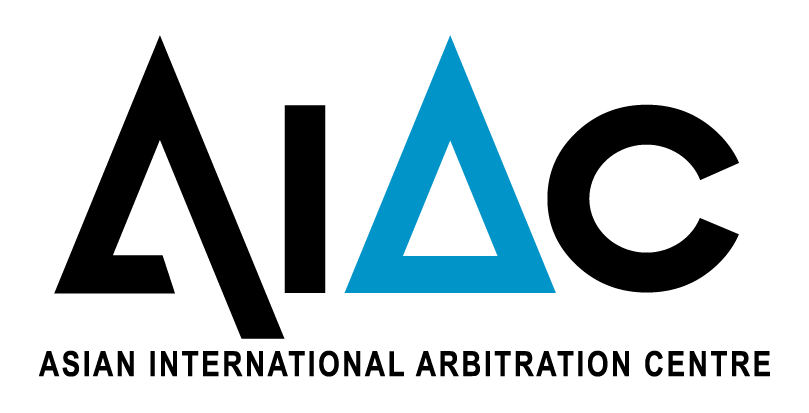ANNOUNCEMENT
January 23, 2015
Seminar: Arbitrating in the Middle East
The rise of international trade and investment over the past quarter of a century has led to active parties embracing globalisation. As millions of business transactions take place daily, corporations and nations more often than not end up with opposing opinions in relation to their counterparts, leading to the emergence of disputes. Due to its flexibility and efficiency, affected parties are turning to arbitration as a form of dispute resolution. Having covered talks on the arbitration landscapes of Asia Pacific, Europe and the developing Latin American market over the past few months, it was time to put the booming region of the Middle East under the microscope.
KLRCA teamed up with Stewart Consulting and international law firm Trowers and Hamlins to organise an informative seminar titled, ‘Arbitrating In The Middle East’. The objective of the seminar was to enlighten the attendees with essential practical issues associated with arbitrating in the Middle East that are not found in institutional arbitration rules or text books.
A packed auditorium greeted the evening session as Trowers and Hamlins’ Regional Manager; Nick White took stage to introduce the firm’s credentials and Middle East experience.
With pleasantries out of the way, it was time for Cheryl Cairns from Trowers and Hamlins Dubai to kick start proceedings for the evening by presenting on, ‘The Practicalities of Arbitrating In The Middle East’. Miss Cairns who specialises in both contentious and non-contentious construction law, began her session by advising the audience to show awareness towards the practical issues throughout the three stages of an arbitration; pre-arbitral proceedings, during the hearing and issuance of the award. She further went on to add that the consequences of failing to adhere to the practical requirements could lead to ‘refusal to ratify and enforce an arbitral award’ and the ‘nullification of an award’. Miss Cairns touched on the nuances of the UAE law and how they impacted an arbitration proceeding. The audience were then taken through several more technical points before Miss Cairns concluded by providing illustrations of what could happen if the smaller details are not looked into. These examples included awards being annulled from the failure to adhere to the strict UAE requirements regarding swearing of oaths during the taking of testimonies; and tribunals failing to sign or initial all pages of an Award including reasoning and attachments.
Next to take stage was Scotsman, Alan Stewart who presented the topic, ‘An Arbitrator’s and Expert’s Perspective on Arbitrating in the Middle East’. Amongst the points covered by Alan were; ‘Why is Arbitration so Prevalent’, ‘The Arbitration Options’, ‘The DIAC [Dubai International Arbitration Centre] Rules’, ‘Time & Cost Certainty’, ‘Difficulties In Practice’, and ‘Enforceability’. The audience were taken through a brief geography lesson of the UAE before Alan dissected and elaborated on several UAE Civil Procedure Laws that covered the area of arbitration. The speaker also provided glimpses of the Middle Eastern adjudication industry by sharing his first hand experience and knowledge with the room before wrapping up his presentation by summarizing the pros and cons of arbitrating in the Middle East.
A networking break soon greeted the speakers and attendees, signifying the half way mark of the seminar. Upon resuming, Trowers and Hamlins’ Head of International Dispute Resolution and Litigation Dubai; Lucas Pitts took centre stage to present on, ‘Commercial Arbitration in the Middle East’s Various Arbitral Institution’. The attendees were taken through the various arbitral institutions available across Bahrain, UAE, Oman, Qatar, Saudi Arabia and Kuwait. Lucas also touched on the significant conventions and treaties linked to the Middle Eastern arbitration landscape. Examples given included the ‘1958 GCC Constitution’, ‘1981 GCC Constitution’ and the ‘1983 Pan-Arab Riyadh Convention’. The speaker then directed the attendees’ attention towards issues of enforceability before concluding with exemplifications of old and new local legislations affecting Middle Eastern arbitration proceedings.
Taking charge of the evening’s final topic was KLRCA’s very own Faris Shehabi, presenting on, ‘Arbitrating Islamic Finance’. With the previous presenters already touching briefly on Shariah compliances being included in a majority of Middle Eastern model clauses and contracts; the stage was set for Faris to sift into the topic on a grander scale and elaborate its functions and implications in detail. Using KLRCA’s international award winning platform – the KLRCA i-Arbitration Rules’ as the primary example, Faris shared with the attendees the benefits of having a comprehensive and complex free tool that is readily accessible to all parties regardless of their existing comprehension of the Shariah world; as it will allow added involvement and participation from multiple stakeholders resulting in higher market growth for the industry.
The informative and insightful seminar soon drew to a close as all four speakers gathered on stage for a concluding interactive question and answer session that was moderated by Nick White.






